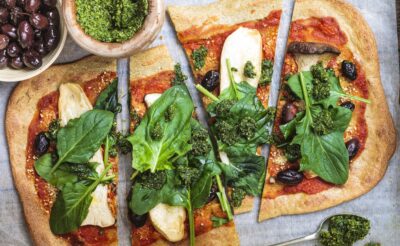In the current issue of MOJEH we examine the latest hot topic to take over the realms of health and beauty, our body’s natural defence system, inflammation.
Every now and again, a new health concern and, ultimately, a new way of eating fights its way into our consciousness. There were acai berry bowls designed to revive our flailing levels of antioxidants, then there was our acidity intake that became balanced with avo-based everything. The avocado has, rightly, remained a dietary staple well into 2016, but our fascination has found a new focus.
From an anti-inflammatory diet to the test the experts recommend you take, here we share the five things you need to know.
1. What is Inflammation?
When we catch a cold or cut ourselves, inflammation fights against the infection for us. The vast majority of us will have been prescribed anti-inflammatories for a range of ailments following a visit to the GP. But, how does our body’s protective response become detrimental?
Our immune system is designed to identify tissue under stress. To combat this, the system first employs a pathway called primary inflammation. The pathway works on two levels by detoxifying the tissues and by working to repair the injured cells. Usually, in low-stress situations, this response goes unnoticed as long as our system is working efficiently. We are alerted to inflammation when there is a high-stress situation, for example, a physical trauma, recurring emotional stress, or an allergic reaction. But, this inflammatory response isn’t just a by-product of injury or illness. Inflammation can be triggered by a range of aggravators, including a preservative-laden diet, exposure to chemicals, pesticides and pollutants, persistent stress, gastrointestinal issues, a sedentary lifestyle and the consumption of food allergens, like gluten and dairy.
2. The Concern
Research is on-going however recent studies have highlighted that inflammation could cause a range of both physical and mental ailments including ADHA, Alzheimer’s, cancer and cardiovascular disease. However, Tanya Zuckerbrot, registered dietician and founder of the high fibre, lean-protein F-Factor Diet informs us that inflammation only becomes problematic when it is persistent, long-term and chronic; for example, when the inflammatory response is excessive or in response to something inappropriate, like in the case of somebody with celiac disease who ingests gluten. “An inflammatory response is initiated and causes gastrointestinal damage,” Zuckerbrot points out.
3. Am I Inflamed?
While inflammation is cause for concern for some Dr. Andrew Miller, who is leading studies in the link between inflammation and disorders like depression says there’s no need to panic right away. There’s one way to know our levels of internal inflammation for sure. “One of our most common misconceptions is that inflammation is labeled as the “root of all evil,” he says. “Go to your doctor and get tested. If your C-reactive protein (CRP) is greater than 1mg/L, you are in the moderately inflamed category. If it is greater than 3 mg/L, you are into the high range,” he advises.
4. The Expert Advice
The professional advice may not be too surprising, a tried and tested combination of healthy eating, exercise and mindfulness. Dr. Miller recommends a routine of exercise including meditation and yoga, social activity and a Mediterranean diet, which includes lean proteins, vegetables, legumes, and olive oil while Zuckerbrot, who is known for advising her high profile clients around the clock, takes a highly targeted approach to her ingredients. Refined carbohydrates and sugars are to be avoided, as well as Omega-6, which features heavily in modern diets and is found in vegetable oils like safflower, sunflower oil, corn oil, soybean, and canola oil. Mayonnaise, salad dressings, and sunflower seeds are also out, as they carry high levels of Omega-6 fatty acids.
5. Foods to Fight
Turmeric has taken over as the anti-inflammatory ingredient du jour, but nutritionist to the stars, Tanya Zuckerbrot says there’s many more ways in which we can fight it. Her breakfast smoothie recipe blends berries, chia seeds, ground flax seeds and ice. “Blueberries and blackberries contain antioxidants that can reduce inflammation and aid in healing, chia seeds and ground flax seeds provide a boost of Omega-3 fatty acids, which have an anti-inflammatory effect on the body, and ice creates higher water content, which in the body takes healing nutrients to the cells where they’re needed and removes waste products,” she says.
Spices like cloves, ginger, and rosemary have also been proven to have anti-inflammatory effects on the body. The dietician also recommends sipping chamomile tea and snacking on pieces of pineapple in between meals, “Bromelain is an anti-inflammatory enzyme found in the core. The bromelain works best when pineapple is eaten separately from other foods.”



